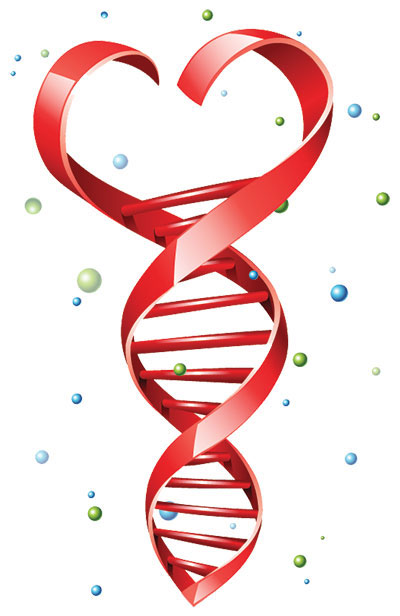Healing Chronic Disease With Raw Food
 A diet high in raw foods is the single best thing you can do to reverse a chronic disease, along with reducing your stress level. Raw foods provide a powerfully therapeutic and completely natural treatment by eliminating harmful dietary foods, and reducing the need for highly toxic medications (many of which list serious conditions such as cancer as a possible secondary side effect). They also maximize protective components such as antioxidants, phytochemicals, fiber, and plant sterols to help our bodies heal.
A diet high in raw foods is the single best thing you can do to reverse a chronic disease, along with reducing your stress level. Raw foods provide a powerfully therapeutic and completely natural treatment by eliminating harmful dietary foods, and reducing the need for highly toxic medications (many of which list serious conditions such as cancer as a possible secondary side effect). They also maximize protective components such as antioxidants, phytochemicals, fiber, and plant sterols to help our bodies heal.
Notice I said "high in raw foods" and not "100% raw." A raw food diet does not necessarily have to mean 100% raw, it simply means that most of your diet is comprised of raw foods.
A direct correlation exists between a diet high in both processed and cooked food, and the skyrocketing rates of disease in the western world. There are many studies conducted by research teams worldwide from countries including Sweden, Finland, Germany, and the USA, that show clear evidence of how raw foods cure chronic disease. Here are just a handful:
Heart Disease & High Cholesterol
- Studies from both Europe and the USA indicate improvements in metabolic markers for cardiovascular disease.
- Various studies from both Finland and Germany found raw food vegans had the lowest blood pressure, total and LDL cholesterol, triglycerides, hs-CRP and plaque build-up. One study found reduced cholesterol and triglyceride levels on a raw food diet. It also showed an elevated homocysteine (which can be indicative of low vitamin B12), which may be due to large quantities of healthy fats in raw foods that some raw foodists eat (nuts, seeds, avocados...).(1)
- Cholesterol & blood pressure is reduced on a raw food diet.(2) An experiment filmed 9 volunteers (aged 36-49) who went on a 12-day raw food diet to see what effect it would have on blood pressure and cholesterol. The volunteers consumed a rotating diet of raw fruits, vegetables, honey, and nuts each day. Their primary diet was composed of broccoli, carrots, radishes, cabbage, tomatoes, watercress, strawberries, apricots, bananas, mangoes, melons, figs, plums, satsumas, and hazelnuts.
The food regime was created by nutritionist Lynne Garton and King's College Hospital. It was based on research showing that such a diet could have health benefits for cholesterol levels and blood pressure, because it consists of foods our bodies have evolved to eat over thousands of years. The prescribed daily menu provided up to 5 kilos and up to 2,300 calories (between the 2,000 recommended for women, and 2,500 recommended for men).
- Overall, the cholesterol levels dropped 23% (usually achieved only through anti-cholesterol drug statins).
- The group's average blood pressure fell from a level of 140/83 - almost hypertensive - to 122/76.
- Though it was not intended to be a weight-loss diet, participants dropped 4.4kg (9.7lbs.), on average.
The regime provided an education for all, and a permanent change for some. They also cut salt intake, from a group average of 12g a day, to 1g (against a guideline maximum of 6g), and reduced saturated fat (which makes cholesterol) from 13% to 5% of calories. The main lesson learned was to simply eat more fruits and vegetables for better health.
Rheumatoid Arthritis
- A bone mass and inflammation study was conducted by Dr. Luigi Fontana from the Washington School of Medicine in St. Louis, Missouri. In the published study, 18 volunteers, aged 18-85, ate a raw vegetarian diet for 3.6 years and were compared with people of their own ages who ate a conventional diet. Both groups were measured for bone mass, bone mineral density, markers of bone turnover, levels of Vitamin D, and inflammatory markers (C-reactive protein and insulin-like growth factors).
The clinical trial results found raw food vegetarians to have less inflammation in general (inflammation is a marker for disease and aging). Bone turnover rates were normal, their Vitamin D levels were higher, and their fat percentages were lower. Dr. Fontana suggested that despite having lower bone mass, the raw food diet may actually produce greater healthy bone "quality" as opposed to "quantity."(3) - 7 studies in Finland found a significant reduction in morning stiffness, swelling of joints, pain, and others symptoms of rheumatoid arthritis. They also found favorable changes in blood cholesterol levels. Benefits were also clearly visible in both blood and urine tests, as well as x-rays. These benefits disappeared when the raw food diet was no longer consumed.
- A research study published in the British Journal of Rheumatology found that patients felt better and joint stiffness was reduced on a raw food vegan diet. The antioxidant amounts were significantly increased in their blood, helping to provide protection from joint degradation.(4)
- A study on antioxidants in vegan diets conducted in Finland compared a diet comprised of uncooked vegetables, berries, nuts, and roots that were germinated, as well as sprouts, to a typical omnivorous diet. Raw food vegans reported a decrease in joint stiffness and pain, as well as an improvement in overall health.(5)
Fibromyalgia
- A research group in Finland followed 28 patients over 3 months split between living (raw) foods and a non-raw group. The living food participants had significant improvement in pain scores and morning stiffness. Their symptoms returned when they resumed a standard diet.
- 1 research group in Hallelujah Acres followed 20 patients over 7 months. 75% had significant improvement of symptoms, and averaged a 46% reduction in fibromyalgia symptoms.
- A study published in the Scandinavian Journal of Rheumatology found a raw vegan diet improved the condition of fibromyalgia sufferers. 18 subjects ate a raw food diet, while 15 controlled patients ate a non-raw diet. The subjects who ate a raw food diet had less joint pain and stiffness, sleep patterns improved, serum cholesterol and urine sodium were lowered, and all lost weight.(6)
Type 2 Diabetes
The Body Healer |
Diabetes has now reached epidemic proportion in the USA, and medications are not the answer. In fact, many of the medications for diabetes list serious and potentially life-threatening secondary side effects. Plant-based diets have proved to be extremely effective on a variety of levels, with many individuals able to completely reverse diabetes in 30 days after eating a raw food diet.
Raw foods help normalize diabetes because they normalize the glycemic load. Grains are eaten intact, and generally sprouted. Raw foods are also naturally anti-inflammatory and rich in fiber, antioxidants, and phytochemicals. They offer tremendous potential for diabetes.
The number of patients who have healed themselves of diabetes on a high raw diet is significant, and there are now many studies to prove it.
- In Gabriel Cousens' "There Is A Cure For Diabetes" program, a 1-week green juice fast, followed by organic raw foods is consumed. Cousens reported that most type 2 diabetes participants are able to discontinue medications and insulin, and achieve normalized blood sugar. Type 1 participants were reported to dramatically reduce, and in some cases, discontinue insulin use.(7)
- A nationwide search was undertaken for 6 diabetics on the standard American diet, and a medical team was assembled to monitor their blood work and vitals each day. No meat, dairy, alcohol, caffeine, or refined foods of any kind were eaten, including no processed sugars. Raw foods were incorporated into their diet. Not only did their diabetes improve, but so did other health conditions.
- By the 4th day, they were off their insulin completely
- By the end of 30 days, their blood sugar had stabilized
- A huge improvement was experienced in both emotional and mental health
There are many individuals who have reversed their diabetes on a raw food diet - going from insulin dependence to no insulin in under a month. What diabetic medication can boast this success rate?
Cancer
- 1 study conducted in the US and 2 in Finland demonstrated less damage to DNA, better protection against DNA damage, lower IGF-1 levels, and reduced levels of a variety of toxic metabolites with raw foods. They demonstrated improved metabolic markers of cancer risk than in those on a standard American diet.
- Over 24 studies during 1994-2008 examined raw and cooked vegetables with regard to cancer risk. Most studies found that as vegetable intake increased, cancer risk decreased. These findings were more consistent for raw than cooked vegetables. Cooking decreases the protective nutrients such as vitamin C, as well as the phytochemicals. It also destroys enzymes that produce anti-cancer compounds, and produces mutagens (substances that damage DNA).
- A 1yr vegan study of 43 men with prostate cancer monitored the PSA levels (prostate specific antigen) in participants. PSA levels show whether cancer is getting worse (high number) or better (low number):
- Control group: PSA rose 6%, and 6 of 49 men needed treatment
- Vegan participants: PSA fell 4%, 0 men needed treatment - Raw cabbage reduces the risk of cancer. Women who moved from Poland to the US tripled their risk of breast cancer, since they were no longer consuming at least three servings of their cabbage and sauerkraut. The reason behind this study, which was conducted at the University of Mexico in 2005, was to show that the Polish diet contains glucosinolates, which correlate with lowered cancer risk.
PMS
- In a study of women aged 22 to 48 on a low fat vegan diet, it was noted that the intensity and duration of pain and PMS symptoms fell.(8)




 Learn more about how we get sick, and how we heal:
Learn more about how we get sick, and how we heal: